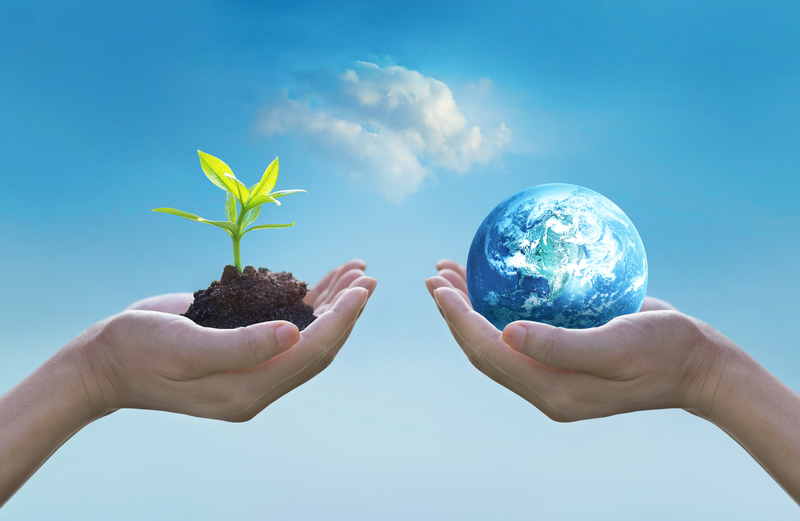How Paper Packaging Is an Effective Method of Preserving the Environment

The growing concerns about environmental protection and making sustainable packaging have become a key focus in the fight against pollution and waste. Businesses encouraging their consumers to use more eco-friendly materials is not only reducing their carbon footprint but also boosting responsible consumer habits that prioritize the planet. The movement toward sustainable packaging offers a powerful way to reduce environmental impact and promote a circular economy.
The South Korean government is now raising concerns about switching to more eco-friendly packaging to prevent environmental and other issues caused by plastic packaging. Here are the distinct differences between plastic packaging and more sustainable packaging materials, such as paper packaging.
The Plastic Packaging: A Global Problem
Undoubtedly, plastic packaging is a significant contributor to pollution, landfill accumulation due to its non-biodegradable nature, and health risks. In 2020, an estimated 550,000 tons of single-use plastic packaging had been consumed in South Korea, followed by nearly 84,500 tons of PET bottles. Plastic waste found littering streets, polluting oceans, and clogging landfills never fully biodegrades because it doesn’t naturally decompose. Another issue that is rising is the plastic fragments becoming tiny particles called microplastics that harm the environment and living creatures, including humans.
In response to these environmental and other issues, the South Korean government has implemented strict regulations on plastic packaging. Since November 24, 2022, plastic packaging cannot be sold in convenience stores, bakeries, or retail stores larger than 33 square meters. Additionally, supermarkets over 165 square meters and stores exceeding 3,000 square meters have also banned plastic packaging to help curb plastic pollution.
Eco-Facts About Plastic Packaging:
- Plastics are made from a non-renewable resource named High-Density Polyethylene (HDPE), a petroleum byproduct.
- Recycling plastic packaging can be challenging due to their tendency to escape bins or jam recycling equipment.
The Paper Packaging
Awareness of the plastic pollution issue in South Korea is in line with the rising demand for sustainable packaging alternatives. The exploration of packaging innovations such as paper-based material offers reliable solutions to minimize environmental impact. The fact that paper packaging is made from biodegradable and recyclable materials makes it easy to accept for consumers. Paper packaging is now becoming the plastic packaging alternative. It also has durability, sizes, and types that make it a better option for shopping and food packaging.
The market for biodegradable paper packaging in South Korea is forecast to grow, with a compound annual growth rate (CAGR) of 12.3% through 2034. Korea’s packaging industry is now leading in developing cutting-edge solutions to overcoming environmental challenges. Korean consumer preferences are also evolving. Korea’s packaging industry is in the development of new materials, designs, and formats that enhance the appeal and functionality of biodegradable packaging. This shift is aligned with Korea’s broader environmental objectives, which aim to balance packaging requirements with the necessity for eco-friendly alternatives to minimize the environmental impact of plastic.
Eco-Facts About Paper Packaging:
- Unlike plastic, paper packaging is compostable because it is made from renewable resources like trees and can be easily disposed of or recycled.
- Paper packaging is highly recyclable. The fibers from recycled paper packaging can be reused to make new bags or other paper products, which helps save natural resources.
- Paper packaging is safe for food since it doesn’t contain harmful chemicals or toxins.
One of the paper packaging brands that is introduced in the South Korean market is Foopak Bio Natura by APP Group. APP Group, a global leader in the pulp and paper industry, has been present in South Korea since 2023. Foopak Bio Natura is recyclable and compostable packaging, underscoring APP Group’s dedication to circularity.
This sustainable product not only addresses today’s environmental challenges but also promotes a healthier and more responsible future. Foopak Bio Natura is also recyclable and repulpable without any additional treatment or process.
APP Group is well known for their commitment to sustainability through a diverse range of innovative products. APP Group focuses on creating meaningful environmental impact through their products, such as Paperbag Kraft and Foopak Bio Natura, that are designed not only to ease environmental burdens but also to ensure consumer safety with certifications like PFAS-free, FDA-compliance, REACH and BfR certified for food contact.
Sources:
- https://stanfordmag.org/contents/paper-plastic-or-reusable
- https://pmc.ncbi.nlm.nih.gov/articles/PMC4866139/
- https://www.nationalgeographic.com/environment/article/microplastics-are-in-our-bodies-how-much-do-they-harm-us?loggedin=true&rnd=1691181657435
- https://www.statista.com/statistics/1100577/south-korea-single-use-plastic-consumption/
- https://www.futuremarketinsights.com/reports/biodegradable-paper-and-plastic-packaging-market
